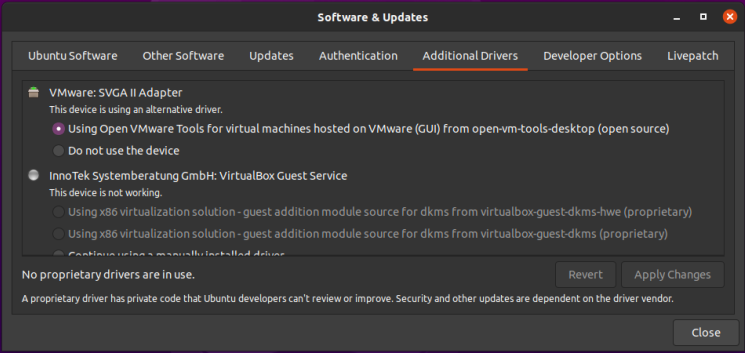As the title states. I'm sure it's not a hardware problem I checked the internals. I'm not sure what it could be, I keep the OS updated, I'm very diligent about it. Any help would be appreciated.
Architecture: x86_64
CPU op-mode(s): 32-bit, 64-bit
Address sizes: 48 bits physical, 48 bits virtual
Byte Order: Little Endian
CPU(s): 12
On-line CPU(s) list: 0-11
Vendor ID: AuthenticAMD
Model name: AMD Ryzen 5 5600X 6-Core Processor
CPU family: 25
Model: 33
Thread(s) per core: 2
Core(s) per socket: 6
Socket(s): 1
Stepping: 0
Frequency boost: enabled
CPU max MHz: 4650.2920
CPU min MHz: 2200.0000
BogoMIPS: 7403.11
Flags: fpu vme de pse tsc msr pae mce cx8 apic sep mt
rr pge mca cmov pat pse36 clflush mmx fxsr sse
sse2 ht syscall nx mmxext fxsr_opt pdpe1gb rd
tscp lm constant_tsc rep_good nopl nonstop_tsc
cpuid extd_apicid aperfmperf rapl pni pclmulq
dq monitor ssse3 fma cx16 sse4_1 sse4_2 movbe
popcnt aes xsave avx f16c rdrand lahf_lm cmp_l
egacy svm extapic cr8_legacy abm sse4a misalig
nsse 3dnowprefetch osvw ibs skinit wdt tce top
oext perfctr_core perfctr_nb bpext perfctr_llc
mwaitx cpb cat_l3 cdp_l3 hw_pstate ssbd mba i
brs ibpb stibp vmmcall fsgsbase bmi1 avx2 smep
bmi2 erms invpcid cqm rdt_a rdseed adx smap c
lflushopt clwb sha_ni xsaveopt xsavec xgetbv1
xsaves cqm_llc cqm_occup_llc cqm_mbm_total cqm
_mbm_local clzero irperf xsaveerptr rdpru wbno
invd arat npt lbrv svm_lock nrip_save tsc_scal
e vmcb_clean flushbyasid decodeassists pausefi
lter pfthreshold avic v_vmsave_vmload vgif v_s
pec_ctrl umip pku ospke vaes vpclmulqdq rdpid
overflow_recov succor smca fsrm
Virtualization features:
Virtualization: AMD-V
Caches (sum of all):
L1d: 192 KiB (6 instances)
L1i: 192 KiB (6 instances)
L2: 3 MiB (6 instances)
L3: 32 MiB (1 instance)
NUMA:
NUMA node(s): 1
NUMA node0 CPU(s): 0-11
Vulnerabilities:
Itlb multihit: Not affected
L1tf: Not affected
Mds: Not affected
Meltdown: Not affected
Spec store bypass: Mitigation; Speculative Store Bypass disabled
via prctl and seccomp
Spectre v1: Mitigation; usercopy/swapgs barriers and __use
r pointer sanitization
Spectre v2: Mitigation; Full AMD retpoline, IBPB condition
al, IBRS_FW, STIBP always-on, RSB filling
Srbds: Not affected
Tsx async abort: Not affected


